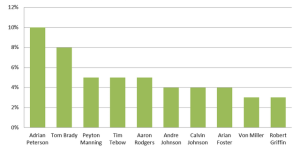Have you ever been on Facebook and wondered why there were so many ads listed on the right-hand side that seemed liked they were almost made for you? Today, marketers are collecting information from social media sites about user’s behaviors, their usage patterns and their location. The data is then often used to segment consumers based upon patterns. And what’s even more surprising is that users are giving marketer’s permission to access this information, however many didn’t realize they gave permission.
The underlying problem is that consumers don’t fully understand what social media sites are collecting and any disclaimers that might be associated with using them and social media platforms aren’t very transparent about sharing this information.
For instance, did you know that if you pin a photo on Pinterest that it’s the user’s responsibility to receive permission to pin that photo from the particular site? The only way to pin a picture without violating the site’s terms of service and the picture owner’s copyright is to only pin pictures that you’ve taken yourself. And did you know that if you ‘like’ a Facebook page about a health condition or treatment, an insurer might use this information against you?
While social media continues to grow in popularity, there is need for more transparency. Marketers should be more forthright with consumers about how their interaction with social media is really being used. While guidelines are currently being explored among agencies to monitor these sites, it should be the marketer’s responsibility to incorporate ethical measures upfront to ensure that consumers are well informed and well educated. This will enable marketers to drive the change before agencies get too involved. As a result, the media revolution will be one that all parties can feel good about.
http://mashable.com/2012/03/21/pinterest-copyright-legal-issues/
http://www.nbcnews.com/technology/consumer-reports-facebook-privacy-problems-are-rise-749990


